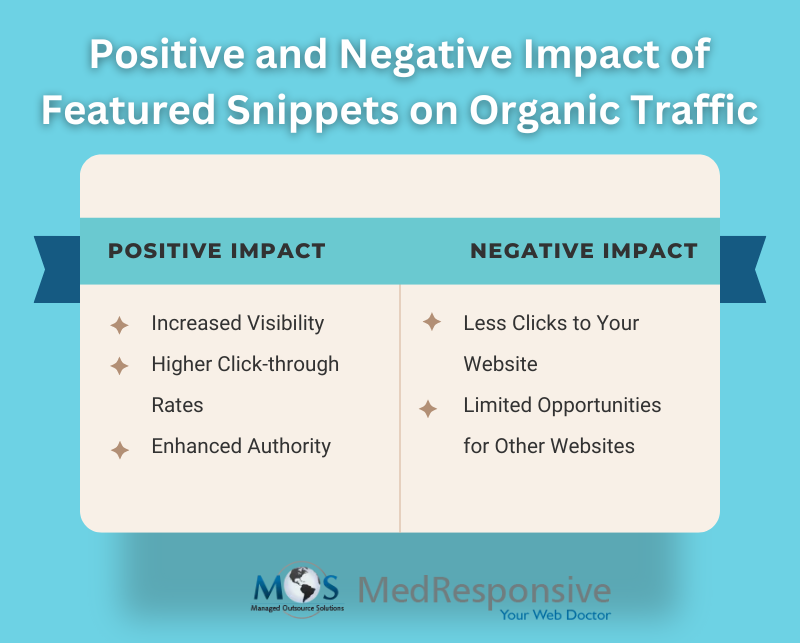When users perform a search, they are presented with a list of results, each accompanied by a snippet, a brief preview of what lies within the webpage. This snippet typically includes the page title, URL, and a concise description or summary. For businesses and website owners investing in organic SEO services, understanding and optimizing these snippets is crucial for achieving visibility and driving user engagement.
Search results snippets are not just static pieces of text, they are dynamic elements that can significantly influence user behavior. With the rise of advanced search algorithms and increased competition for user attention, how you present your content in these snippets can make the difference between capturing the user’s interest or being overlooked entirely. Today’s snippets are more versatile than ever. Their maximum character count used to be 165, but it can now reach 320 or more. They can range from traditional meta descriptions to enhanced formats featuring rich snippets, such as star ratings, images, or FAQs.
What Is the Source of Snippets?
The ability of the main search engines’ algorithms to identify and comprehend the content of your website has been steadily advancing over the years. However, by using structured data to markup your website’s content, you are assisting the search engines in comprehending the content of the page more precisely so that relevant information can appear in search results. You may proactively specify your content and information with structured data, negating the need for an AI tool to analyze the information your website provides. Making these small HTML changes will allow you to improve your position in search results.
To be clear, creating a rich snippet and using structured data markup won’t make your website boom in the search engine results. However, by giving searchers more helpful information on a results page, they will drive more clicks to your website. Structured data markup is very beneficial for e-commerce and for anyone selling specialized products, especially in the fiercely competitive local SEO market. Rich snippets are the simplest to obtain of the two in terms of difficulty. However, Google has made it clear that the content on the page rather than structured data or your meta descriptions is the main source of the snippets it displays in the search results. Google clarified this term in its snippets control help document update.
Featured Snippets Are Much More Elusive
Featured snippets are extracted straight from a web page and include a link to the referring page, the original page title, and the URL. Their purpose is to highlight the best response to a query above all other organic results. You must first provide a response to the searcher’s query that is better than the others if you hope to reach position zero, which is holy ground.
Featured snippets are included in the broader category of search engine results page (SERP) features, which are unique results that are shown differently from standard search listings. Google chooses featured snippets for a given query based on whatever content in its index best suits users’ search intent, or the reason they are searching. Sometimes a person clicks on a snippet and is sent directly to the answer area of the page, making it much simpler to locate relevant more information.
Google Featured Snippet Changes and Their Effect on Organic Traffic by 2024
Google is always improving its algorithms to give users a better experience and deliver more relevant and accurate results. Google has made a number of changes to its featured snippet algorithm in recent years, which have an impact on the creation and presentation of snippets.
The “duplication filter” is a major change that has been implemented. This filter stops a URL from coming up for the same query twice—once as a featured snippet and once as a regular search result. As such, the likelihood of your webpage being selected as a featured snippet decreases if it currently has a high ranking in organic search results.
The change to more dynamic and real-time updates for highlighted snippets is another modification. When choosing snippets, Google now takes recent content and reliable sources of information into account. This change makes it more likely for website owners to be featured by incentivizing them to update their content frequently.
The Impact on Organic Traffic
What impact do these changes have on organic traffic using Google’s highlighted snippets algorithm? It’s critical to recognize that featured snippets can affect organic traffic in both positive and negative ways.
Positive Impact
- Increased Visibility: Having your website included in a snippet can significantly increase brand exposure and website visibility. As they are shown prominently at the top of the SERP, snippets are very visible to users.
- Higher Click-through Rates: Studies show that as compared to regular search results, featured snippets frequently garner higher click-through rates. A snippet that provides a succinct response to a user’s question is more likely to be clicked by the user.
- Enhanced Authority: Having a mention in a snippet gives your website a sense of authority and competence. Users are more likely to believe information provided in bits, which increases the trustworthiness of your brand.
Negative Impact
- Less Clicks to Your Website: Since featured snippets are meant to provide readers with a direct response to their questions, some users might decide not to click on the link that takes them to your website. This may result in less organic traffic, particularly if snippets are regularly displaying your website.
- Limited Opportunities for Other Websites: Websites that had previously achieved high ranks in both regular search results and featured snippets may see a decrease in snippet visibility as a result of the duplication filter. This restriction may reduce the likelihood that other websites will be highlighted.
Google Featured Snippets are still an effective way to increase user engagement and website visibility. Businesses can gain a desirable position at number zero, increase traffic, and establish themselves as reliable sources in their specific niches by realizing the significance of their efforts and putting them into practice. By taking advantage of Google’s Featured Snippets and incorporating them into your SEO plan with the help of organic SEO services, you can stay ahead of the digital competition.





